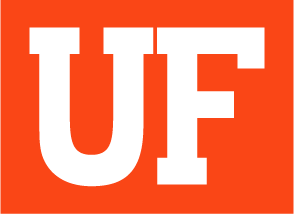SNAP Benefits and Other Assistance Programs
SNAP Benefits
The U.S. Department of Agriculture (USDA) has posted an explanation of SNAP benefits and who is eligible at U.S. Department of Agriculture SNAP Benefits for Students.
SNAP stands for Supplemental Nutrition Assistance Program. This program is federally funded and provides nutrition benefits to supplement the food budget of individuals who may not make enough money to eat healthy consistently.
Apply for SNAP
To apply for SNAP, you will need to fill out the online application at: https://www.myflorida.com/accessflorida.
Frequently Asked Questions (FAQ)
Generally, students attending an institution of higher education (i.e., college, university, trade/technical school) more than half-time are only eligible for SNAP if they meet an exemption. The institution of higher education determines what is considered ‘half-time’ enrollment. Students who meet an exemption must also meet all other SNAP eligibility requirements.
Visit the Florida Department of Children and Families – DCF Access page to find out if you are eligible. The USDA notice outlining requirements can be found at the U.S. Department of Agriculture SNAP Benefits for Students.
If you are a student and you meet SNAP eligibility requirements, you may be eligible for SNAP if you meet one of the following exemptions:
- Are under age 18 or are age 50 or older.
- Have a physical or mental disability.
- Work at least 20 hours a week in paid employment.
- Participate in a state or federally financed work study program.
- Participate in an on-the-job training program.
- Care for a child under the age of 6.
- Care for a child age 6 to 11 and lack the necessary child care enabling you to attend school and work 20 hours a week or participate in work study.
- Are a single parent enrolled full-time in college and taking care of a child under 12.
- Receive Temporary Assistance for Needy Families (TANF) assistance.
- Are assigned to, placed in, or self-placed in a college or other institution of higher education through:
- A SNAP Employment and Training (SNAP E&T) program;
- Certain other E&T programs for low-income households, which are operated by a state or local government and have an equivalent component to SNAP E&T;
- A program under Title I of the Workforce Innovation and Opportunity Act of 2014 (WIOA) (PL 113-128);
- A Trade Adjustment Assistance Program under Section 236 of the Trade Act of 1974.
If you are not sure whether you meet one of the exemptions, contact your local SNAP office to find out how these exemptions may apply to your household circumstances.
For SNAP purposes, you are attending an institution of higher education if you are enrolled in:
- A regular curriculum at a college or university that offers degrees; or
- A business, technical, trade, or vocational school that normally requires a high school diploma or equivalent (GED).
Many colleges offer special programs that are not part of the regular curriculum. These can include remedial education, continuing or community education, professional development, English for speakers of other languages, and workforce development/training programs. If you are enrolled in programs like these, you are not considered to be enrolled in an institution of higher education when you apply for SNAP. Therefore, if you meet all other eligibility criteria, you do not need to meet a student exemption to be eligible for SNAP.
To verify residency, a student will be required to provide documentation. The following documents are examples of what could be used to verify residency:
- In-state license
- Utility bill
- Rental agreement
- Letter from housing services at the institution of higher education
- Letter from a resident assistant (RA) in a dormitory
- Letter from a landlord of a rental property
SNAP benefits are acceptable forms of payment at any SNAP retailer. These retailers include but not limited to Publix, Walmart and Target. SNAP Retailer Locator
Households can use SNAP to buy nutritious foods such as bread and cereal, fruits and vegetables, meat and fish, dairy products and non-alcoholic beverages. SNAP benefits cannot be used to buy any kind of alcohol or tobacco products or any nonfood items like household supplies or vitamins and medicines. Some stores have signage on shelves that states if certain food items are “EBT approved”.
SNAP benefits are delivered monthly through electronic debit (EBT) cards, which are used to purchase groceries at one of the more than 246,000 authorized retailers nationwide. This electronic debit (EBT) card will be mailed to the address you provided on your SNAP application.
Energy/Utility Assistance
Any students that are Florida residents and qualify for SNAP, SSI, or TANF automatically qualify for utility bill assistance as well, even if they are over the maximum allowed income in those tables.
LiHEAP (Low Income Home Energy Assistance Program) provides assistance with heating and cooling costs. More information about this program can be found at the following websites:
- Low-Income Home Energy Assistance Program
- Florida Low-Income Home Energy Assistance Program (LIHEAP)
Affordable Connectivity Program
With the FCC’s Affordable Connectivity Program, you can save on your broadband bill and may be able to get high-speed internet for free. For more information and to apply, visit: FCC’s Affordable Connectivity Program.
Housing Insecurity Resources
For a listing of resources relating to housing and food, visit Housing Insecurity Resources.

